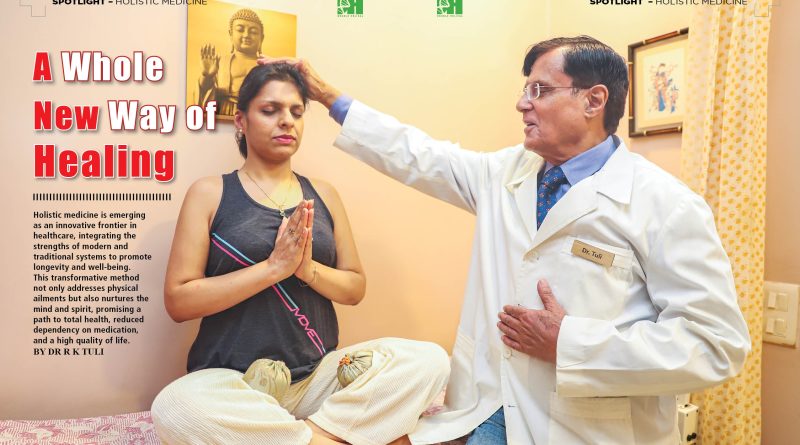A Whole New Way of Healing
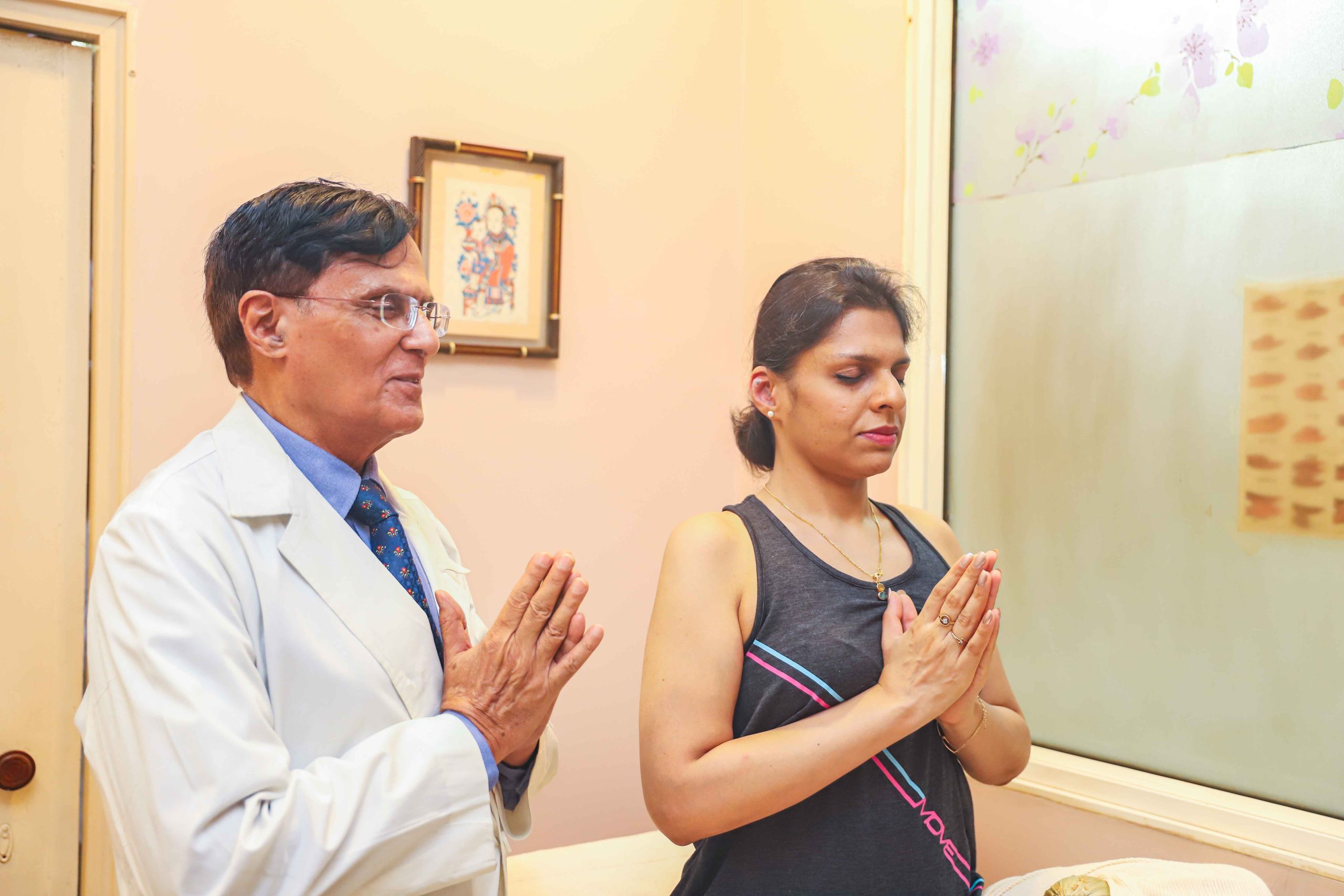 Holistic medicine is emerging as an innovative frontier in healthcare, integrating the strengths of modern and traditional systems to promote longevity and well-being. This transformative method not only addresses physical ailments but also nurtures the mind and spirit, promising a path to total health, reduced dependency on medication, and a high quality of life.
Holistic medicine is emerging as an innovative frontier in healthcare, integrating the strengths of modern and traditional systems to promote longevity and well-being. This transformative method not only addresses physical ailments but also nurtures the mind and spirit, promising a path to total health, reduced dependency on medication, and a high quality of life.
By Dr R K Tuli
It is an inherent desire within every human being to live a long and fulfilling life. However, the true essence of longevity is not merely in the number of years we live, but in the quality of those years. To live long, one must also strive to live well, maintaining good health, feeling vibrant, looking youthful, being productive, and remaining a valuable contributor to society for as long as possible. This holistic approach to living, often referred to as ‘Positive Wellness,’ should be attainable at any age, with minimal or easily manageable disability.
According to statistics from the World Health Organization (WHO), the average life expectancy at birth in India has seen significant improvement over the years. In 1990, it stood at 57 years; by 2000, it had risen to 61 years, and by 2009, it further improved to 65 years. This is in contrast to the current global average of 68 years, with Japan leading the world with an impressive average life expectancy of 83 years. If this trend continues, many of us in India could expect to live a century or more. However, as we gain these additional years, it is imperative that our increasing longevity is supported by enhanced health, reduced dependency on medication, and a high quality of life (QOL).
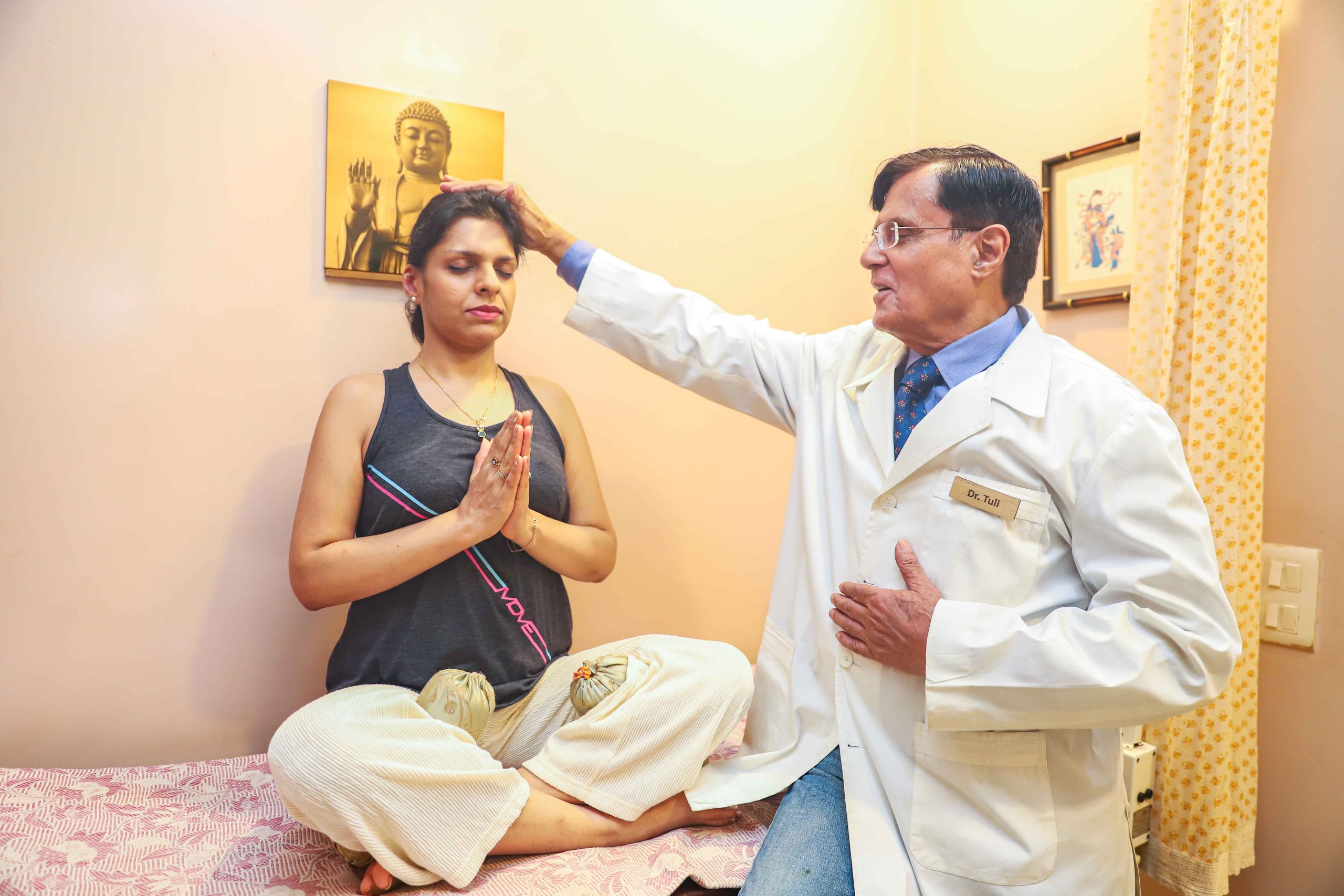 The increase in lifespan can be attributed to a multitude of factors, including greater affluence, improved living conditions, higher levels of education, increased health awareness, healthier diets, better sanitation and hygiene practices, safer working environments, and significant advancements in the prevention and treatment of infectious diseases. Additionally, the development of better medical facilities has played a crucial role. Yet, alongside these advancements, we must also remain vigilant about the emerging threats to our health and survival, particularly those related to lifestyle disorders, viral infections, and the natural process of aging.
The increase in lifespan can be attributed to a multitude of factors, including greater affluence, improved living conditions, higher levels of education, increased health awareness, healthier diets, better sanitation and hygiene practices, safer working environments, and significant advancements in the prevention and treatment of infectious diseases. Additionally, the development of better medical facilities has played a crucial role. Yet, alongside these advancements, we must also remain vigilant about the emerging threats to our health and survival, particularly those related to lifestyle disorders, viral infections, and the natural process of aging.
To address these challenges, it is essential that we incorporate time-tested, drug-free modalities from officially recognised traditional systems of health into our healthcare practices. These modalities have the potential to reverse the effects of aging, prevent, and even cure diseases that are typically associated with the aging process.
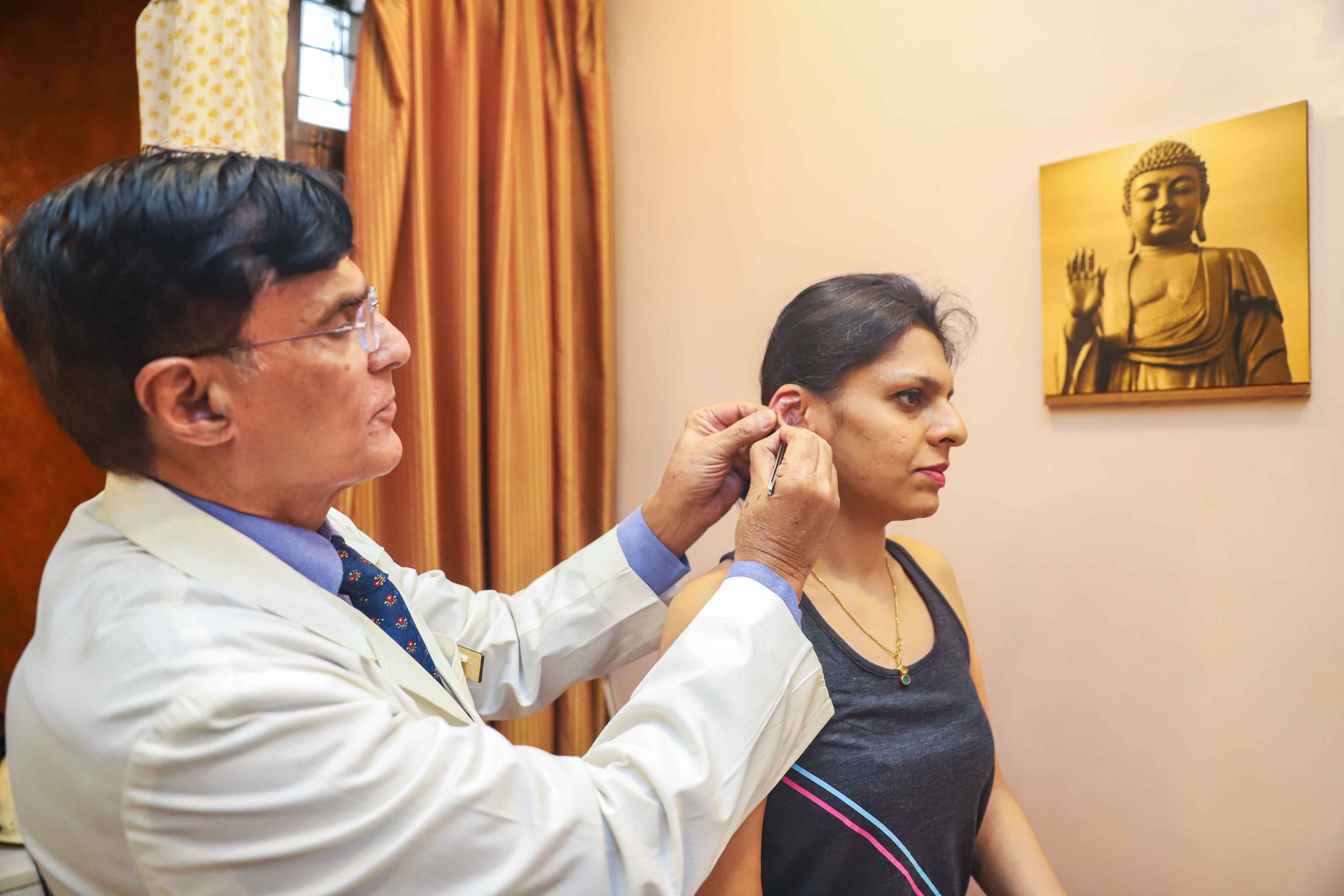 Holistic Medicine, which combines all-inclusive integrative drug-free modalities, is a comprehensive approach to healthcare. It emphasises meaningful lifestyle modifications inspired by the principles of yoga, which include maintaining a peaceful mind, cultivating positive thoughts, ensuring restful sleep, eliminating stress, practicing proper breathing techniques, adopting a healthy diet, engaging in regular physical exercise, undergoing Panchakarma for detoxification, and utilising various forms of acupuncture therapy. These practices are often supported by psycho-hypnotherapy, especially in the management of chronic and refractory diseases.
Holistic Medicine, which combines all-inclusive integrative drug-free modalities, is a comprehensive approach to healthcare. It emphasises meaningful lifestyle modifications inspired by the principles of yoga, which include maintaining a peaceful mind, cultivating positive thoughts, ensuring restful sleep, eliminating stress, practicing proper breathing techniques, adopting a healthy diet, engaging in regular physical exercise, undergoing Panchakarma for detoxification, and utilising various forms of acupuncture therapy. These practices are often supported by psycho-hypnotherapy, especially in the management of chronic and refractory diseases.
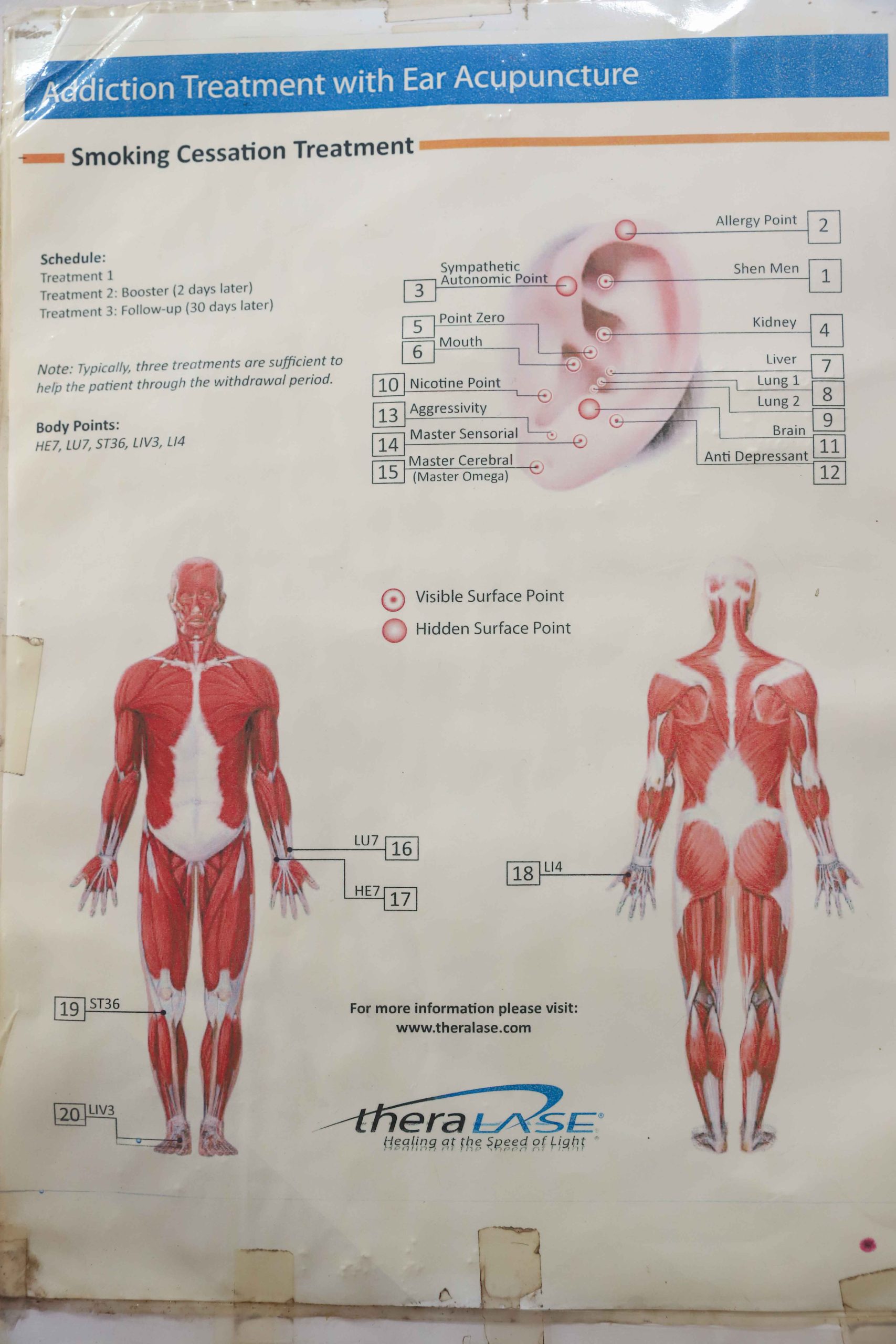
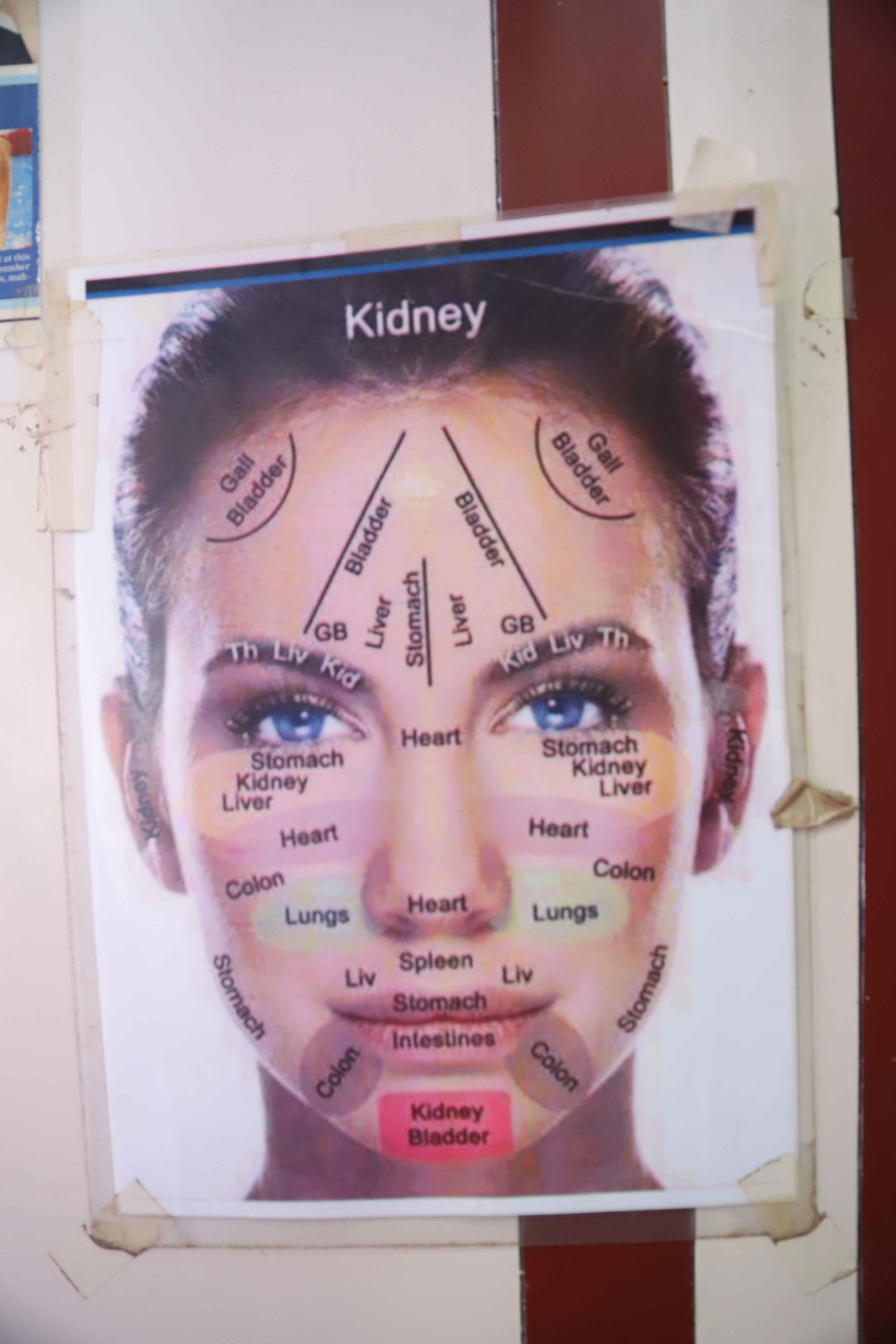
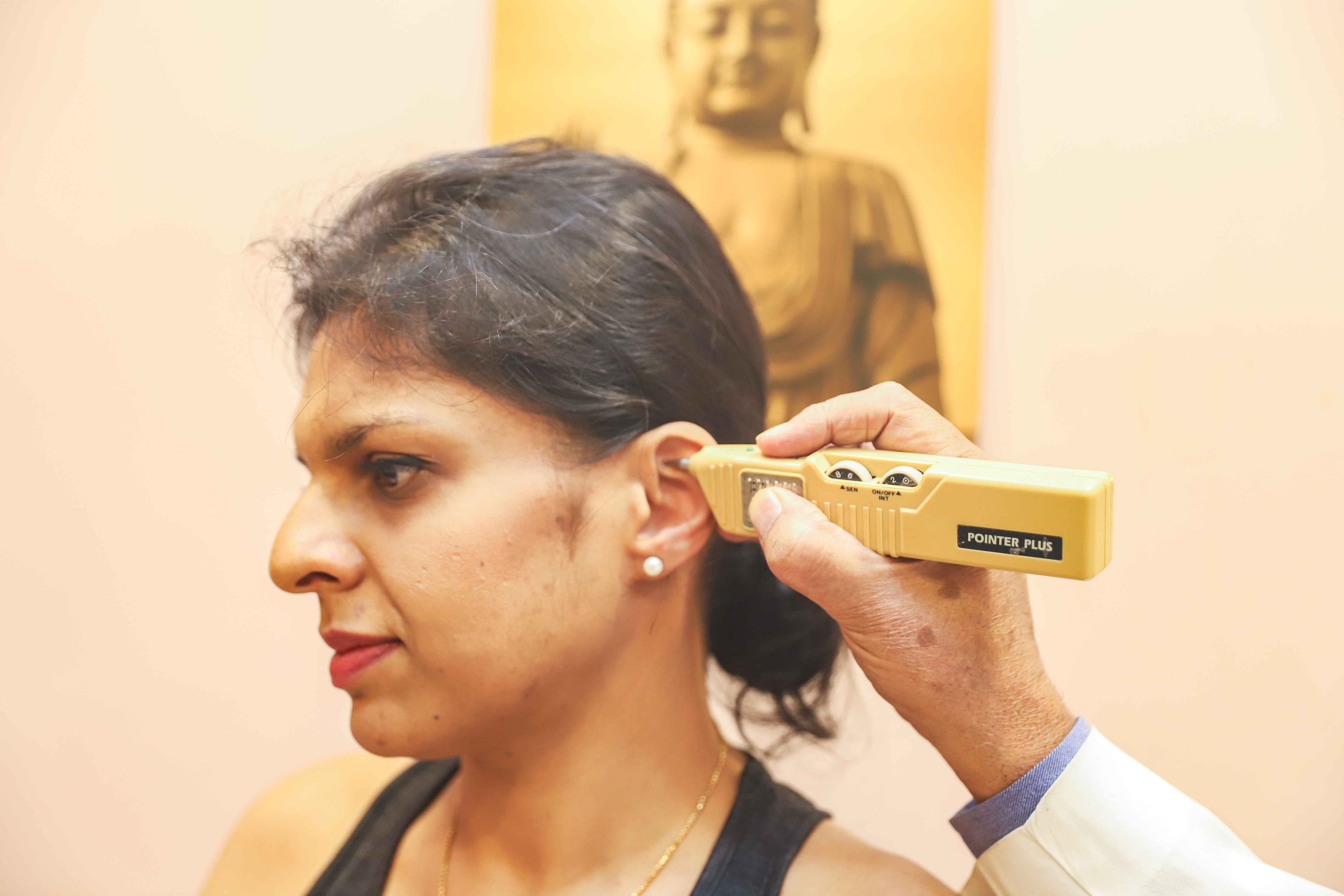
The traditional philosophies of health from both Indian and Chinese cultures view each human being as a microcosm of the larger universal macrocosm. This perspective recognises that the human body is a magnificently organised network of energy, information, and intelligence that is in constant dynamic exchange with its environment. It possesses an infinite capacity for transformation and renewal, continuously replacing old tissues according to a predetermined cycle. By complementing conventional medical care with an awareness of this natural phenomenon, we can significantly reduce the burden of disease, improve our overall health, and decelerate, arrest, or even reverse the biological clock to an appreciable extent.
Holistic Medicine, which integrates the ancient ‘art’ of healing with the modern ‘science’ of medicine, offers a highly effective therapeutic approach. This approach taps into the subtle shifts within our physiology to generate biochemical communicators that influence the molecules comprising our cells, tissues, organs, and entire systems, ultimately treating the human being as a whole. By harnessing the inbuilt natural technology inherent in every individual, we can tap into the unlimited reservoirs of universal energy, creativity, and vitality. This allows us to arrest and reverse disease processes, minimise the morbidity associated with biological aging, and restore positive health and total wellness. As Hippocrates, the “Father of Medicine,” aptly stated, “The natural healing force within each of us is the greatest force in getting well.”
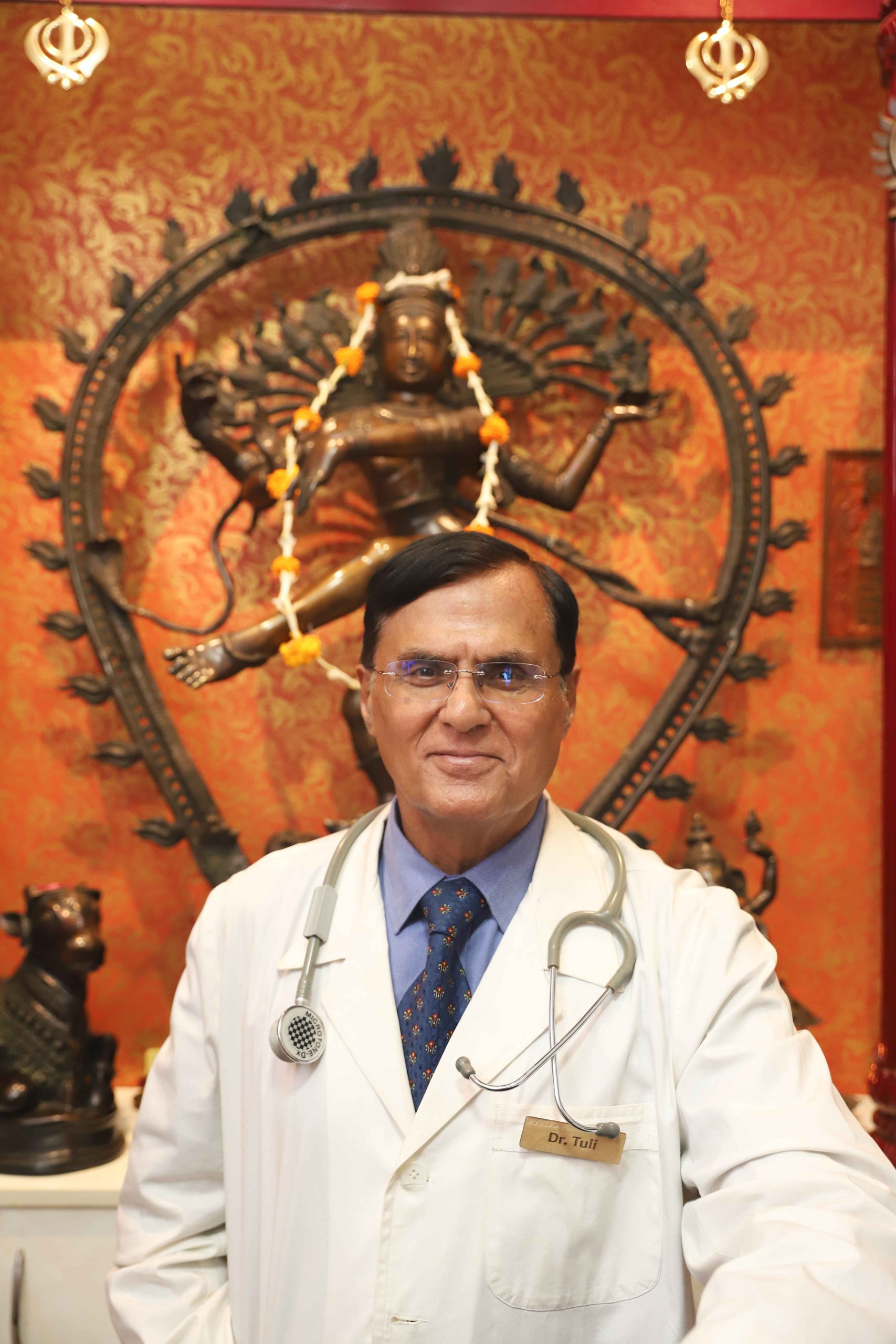 Why Holistic Medicine?
Why Holistic Medicine?
It is increasingly recognised worldwide that it would be impossible to meet all the healthcare needs of humanity through the conventional model of healthcare alone. The WHO has recommended, and our National Health Policy has promulgated, the integration of all recognised systems of medicine. This integrative approach is not only practical but essential in addressing the diverse health challenges faced by individuals today.
What is Holistic Medicine?
Holistic Medicine is a comprehensive approach to health that treats each individual as a whole, encompassing the ‘Body, Mind & Spirit.’ It represents a synergy between the evidence-based ‘science’ of modern medicine and the highly complementary, reproducible, and time-honoured ‘art’ of drug-free modalities from all officially recognised traditional systems of health.
In essence, Holistic Medicine can be represented by the following equation:
Holistic Medicine = Modern Medicine + Alternative Medicine
(Modern = Allopathy; Alternative = Traditional Indian & Chinese Medicine + New Age Therapies)
This approach includes a wide range of modalities:
Conservative Medicine + Life-Style & Stress Management + Ashtanga Yoga + Acupuncture-Reflexology-LASER + Panchakarma-Detoxification + Counselling-Hypnotherapy-PLRT-NLP + Reiki-Pranic Healing-Chakra Balancing + Regenerative Medicine
Benefits of Holistic Medicine
1. It treats the human being as a whole, addressing body, mind, and soul.
2. It offers a ‘synergy’ of drug-free modalities from all recognised systems of health.
3. It is equally beneficial at all levels of health and at all ages.
4. It addresses all ailments of an individual concurrently.
5. It is a drug-free, intervention-free approach with no risk of iatrogenesis.
6. It is highly reproducible, universally beneficial, and both cost- and time-efficient.
7. It is simple, easily accessible, and can be administered anywhere and everywhere.
8. It optimises healthcare by complementing existing infrastructure without additional costs.
9. It significantly enhances the skills and professional satisfaction of practitioners, helping to restore the old glory of the medical profession.
Utility of Holistic Medicine in Anti-Aging
Holistic Medicine has shown remarkable efficacy in treating a wide range of conditions, particularly those associated with aging. These include:
• Pain: Treating any kind of pain, including headaches, migraines, neuralgias, neuropathies, fibromyalgia, trauma, phantom pain, gangrene, and more.
• Paralysis: Addressing conditions like trauma-induced paralysis, polio, stroke, multiple sclerosis, and neuropathy.
•Palliative Care: Providing compassionate care for incurable or terminal conditions, such as cancer.
•Stress and Psychosomatic Disorders: Managing anxiety, depression, chronic fatigue, and other stress-related conditions.
•Autoimmune Diseases and Allergies: Treating rheumatoid arthritis, spondylitis, nephritis, SLE, eczema, bronchial asthma, bronchitis, ILD, sarcoidosis, aspergillosis, and more.
•Degenerative Diseases: Addressing osteoarthritis, spondylosis, disc disease, macular degeneration, dementia, Parkinson’s disease, Alzheimer’s disease, and more.
•Atherosclerosis: Managing hypertension, coronary artery disease, peripheral vascular disease, post-PTCA or CABG care, gangrene, and more.
•Metabolic and Hormonal Disorders: Treating obesity, dyslipidemia, diabetes mellitus, menstrual disturbances, PCOD, infertility, menopause/andropause, and more.
•Substance Abuse and Addictions: Helping with tobacco, alcohol, drug abuse, and other substance dependencies.
•Resistant Infections: Managing persistent fevers, viral infections, pneumonia, influenza, HIV/AIDS, hepatitis, MDR-TB, and more.
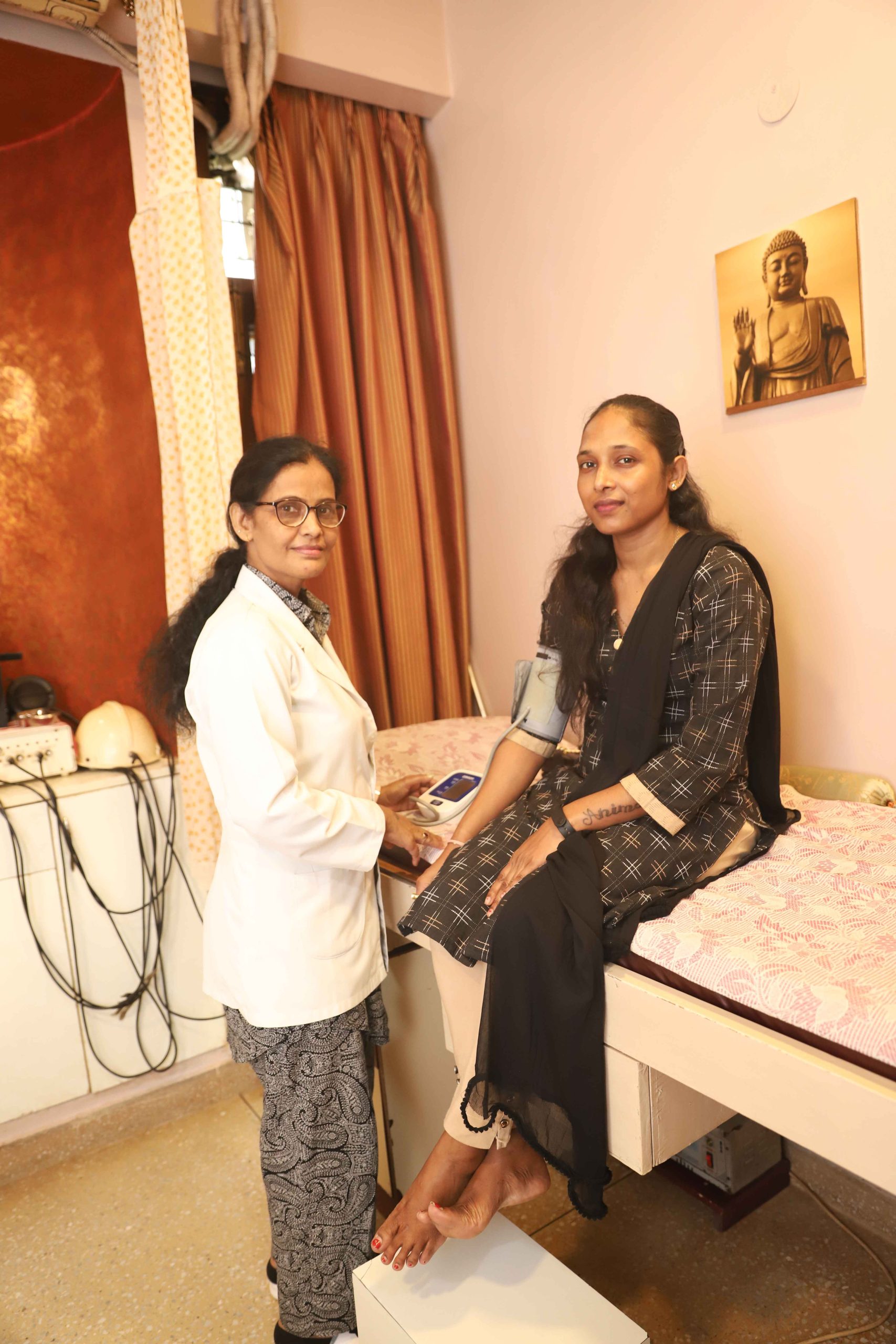 Takeaways
Takeaways
The effectiveness of spiritual power is well illustrated by the ritual of ‘PRAN-PRATISHTHAN’ (Ák.k ÁfrîBku), where the life-force or ‘vkRecy’ can be infused even into a stone form through spiritual observances. This was vividly demonstrated by the recent invocation of RAM LALLA’s MURTI in Ayodhya amidst Vedic rituals and chanting of mantras, following eleven days of intense observances led by Prime Minister Modi.
When this ‘life-force’ is disturbed or depleted in a person due to the conflicts of modern lifestyles, it often becomes the underlying cause of various chronic or long-term ailments. However, these ailments can be effectively reversed by restoring ‘homoeostasis of the milieu intérieur’ and initiating healing through spiritual practices. This concept is well explained in the Samhitas authored by Maharishis Charaka and Sushruta, as well as in the Yoga Sutras of Patanjali, and is further reinforced by the practices of Traditional Chinese Medicine. This patient-centric ideology complements conventional medical practices by addressing the root causes of various illnesses, thereby enhancing health and the overall ‘Quality of Life’ of each individual.
In 1996, Dr. Prathap C. Reddy, the Chairman of Apollo Group of Hospitals, invited me to establish the world’s first-ever Department of Holistic Medicine at Delhi’s premier state-of-the-art multispecialty tertiary care facility, Indraprastha Apollo Hospitals. He referred to it as the “Medicine of the 21st Century.”
The drug-free ‘spiritual’ practices of traditional systems, without conflict, complement and enhance the efficacy of conventional medical practices at all levels of health and for all ages. These practices are particularly beneficial in reversing conventionally incurable diseases.
Government agencies and society, through corporate social responsibility (CSR), must come forward to support large-scale clinical trials at recognised government institutions to establish the scientific credibility of this all-inclusive and integrative approach to health.
(The writer is the Founder of the Society for Holistic Advancement of Medicine “SOHAM.”)

